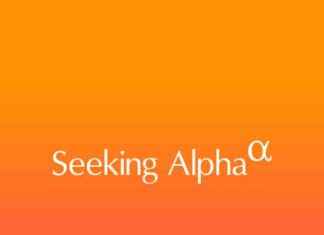The previously endless open comment period at the onset of Boulder City Council meetings soon will be limited to 20 speakers who will be selected at random.
Council members formalized the plan during a study session Tuesday night that followed a much longer discussion at the group’s January retreat regarding various strategies for cutting down the length of meetings that regularly run up to or beyond midnight.
Citizens will not be limited in their ability to address the council during public hearings, and will now see expanded ability to give input on call-ups — development proposals that the council seeks to intervene on — deemed potentially controversial.
However, the open comment period at the beginning of each council meeting, during which members of the public can address their elected representatives on any items other than those already being addressed by public hearing, will be significantly curtailed.
The new system that the council agreed to on Tuesday calls for those interested in speaking during open comment to sign up for an online lottery by contacting City Clerk Lynnette Beck online before 2 p.m. on the Monday before a council meeting.
Beck says she will use Microsoft Excel to randomize the names and a lucky 15 will win two-minute slots during which they can address the council with words or digital presentations, such as PowerPoints and short videos.
The city also will allow an additional sign-up period between 5 and 6 p.m. the day of a council meeting, and will then hold another random drawing — perhaps out of a literal hat, though that was not made clear on Tuesday — for another five speakers.
The council agreed last month to end all of its business meetings by 11 p.m., and its members agreed that cutting into open comment, which often runs for up to about two hours, is a good way to get there.
Long meetings
Councilwoman Mary Young said “the reason we have to do this is … if we don’t limit the public comment, we don’t get to the business.”
In some cases, council agenda items have either been pushed to other meetings or heard late at night. With the council’s new plan to adjourn meetings by 11 p.m. — and not begin any new topic after 10:30 p.m. — comes a commitment to finish any overflow agenda items at the beginning of subsequent study session.
“The whole idea is so that we can have deeper discussion about the matters of the public hearings,” Mayor Suzanne Jones said. “Let’s spend prime time hearing from the public on the issues before us. And we’re also going to value input from other mechanisms so people don’t feel like they have to talk to us in open comment.”
Those mechanisms will include proposed periodic town hall-style meetings and the publication of citizen emails in the City Council meeting agenda packets. A public participation working group is also expected to deliver a series of recommendations for improved citizen outreach later this year.
“We value the feedback we get from all other modes,” Councilman Sam Weaver said. “I think every council member reads every email we get. … Further, we want to be respectful to the community and stick to the agendas we put out.”
Jones noted toward the end of Tuesday’s discussion that the city is likely to hear from some who do not favor this new approach.
“I see a lot of basic technical issues that make it a very poor decision by council,” Rob Smoke, who speaks in open comment more frequently than anyone, said on Wednesday. “I would say they are transparently averse to criticism.”
He continued, “They’re specifically arguing that the entire community has a problem with the late-night meetings and it’s just completely unfair to say that the burden of those late nights falls upon the shoulders of (the public).”
According to city spokeswoman Sarah Huntley, the changes will not be effective until at least the Feb. 21 council meeting. And the council agreed to re-evaluate its rule changes after a few months.
Limits could be expanded
Councilman Bob Yates said it could be appropriate, if and when those rules are ever updated, to limit input during public hearings, too.
“If this works out really well,” he said of the open comment changes, “we may decide there are appropriate changes to public hearings.”
The mayor disagreed, and the conversation moved on.
Tuesday’s discussion also included some debate about the environment at council meetings, and whether it is indeed welcoming enough.
Certain contentious topics tend to draw large crowds waving signs and banners. The council agreed it is not OK for people to block fire lanes or other citizens’ views with these signs.
Some council members also were uncomfortable with a trend that has seen especially heated public hearings preceded by parties in the Municipal Building below the meeting chambers.
Ahead of recent hearings on co-op housing, for instance, dozens gathered for pizza — a sort of occupation that the council felt might make uncomfortable those with views differing from those packing the building lobby before proceedings begin.
“That gauntlet downstairs recently has become challenging for some people,” Mayor Pro Tem Andrew Shoemaker said.
Alex Burness: 303-473-1389, burnessa@dailycamera.com or twitter.com/alex_burness
Our editors found this article on this site using Google and regenerated it for our readers.





